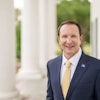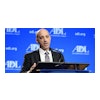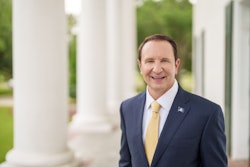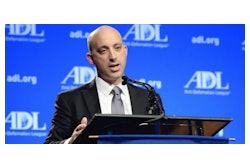The 118th Congress has commenced with chaos, as Republicans have failed to choose a candidate for speaker of the house after five ballots over two days. It’s the first time since 1923 that a speaker has not been chosen on the first ballot. The lack of a speaker has paralyzed the lower chamber and delayed choices about who will lead committees, including the House Committee for Education and Labor, which Republicans are expected to rename Education and the Workforce, as has been their custom when in power since 2010.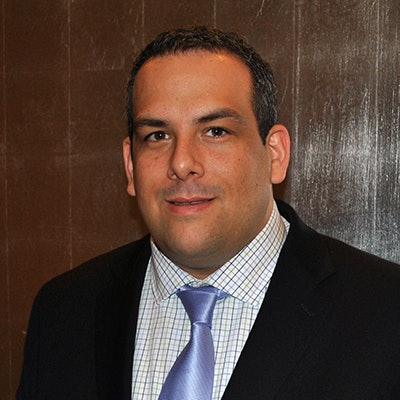 Craig Lindwarm, vice president for governmental affairs of the Association of Public and Land-Grant Universities
Craig Lindwarm, vice president for governmental affairs of the Association of Public and Land-Grant Universities
A leading contender for the chairmanship is U.S. Rep. Virginia Foxx, a North Carolina representative who previously served as chairwoman of the committee from 2017-2019 and was most recently the ranking member. Last December, Foxx secured a waiver allowing her to circumvent Republican term-limit rules to potentially lead the committee again. But Foxx has competition. Michigan representative Tim Walberg has thrown his hat into the ring as well.
If Foxx chairs the committee, making predictions about what it will do becomes easier, according to Craig Lindwarm, vice president for governmental affairs of the Association of Public and Land-Grant Universities.
“Virginia Foxx has been chair of that committee before. She’s known to the higher ed world,” he said. “Congressman Walberg doesn’t have as extensive a public record on these issues.”
Lindwarm believes that a Foxx-chaired committee would have a strong focus on higher ed. Foxx is a former college administrator and had previously introduced several pieces of higher ed legislation, including a reauthorization of the Higher Education Act in 2017.
“Virginia Foxx is deeply, deeply interested in higher education,” said Lindwarm.
But she or any other chairperson is expected to have a difficult time finding common ground with Senate Democrats who control the Committee on Health, Education, Labor, and Pensions.
“How much legislation will they be able to move forward? Probably not much,” said Terry Hartle, senior vice president, government relations and public affairs at the American Council on Education.
Instead, Hartle thought, the focus would be on conducting hard-nosed investigative hearings in an attempt to embarrass the Biden administration.
“The effort is to highlight questionable decision-making, illegality, conflict of interest, just all-around bad behavior by the administration that’s in power,” said Hartle. “They’ll be looking at issues that they think will resonate with the public.”  Dr. Sosanya Jones, associate professor in the School of Education at Howard University
Dr. Sosanya Jones, associate professor in the School of Education at Howard University
Such issues are expected to include the Biden administration’s student loan forgiveness program, Title IX as applied to transgender students, freedom of speech on campus, critical race theory, and the expenditure of COVID-19 relief funds.
Some experts held out hope that there could be room for narrow bipartisan agreements on certain issues.
“I think both Democrats and Republicans are under pressure right now by their constituents and the general public to get college costs under control,” said Dr. Sosanya Jones, an associate professor in the School of Education at Howard University. “I think they have to work on it.”
One possibility for doing so could be a bill requiring clearer language in financial aid offers, a response to a Government Accountability Office report commissioned by Foxx showing that almost no colleges followed best practices in their communications to students.
Jones thought that pressure to regain young voters who turned away from Republicans in the midterm elections could also lead to a deal on the Deferred Action for Childhood Arrivals (DACA) program that would resolve the uncertain status of some portion of the undocumented population.
“Republicans have to be more conscious about how they’re appealing to young people,” said Jones. “They’re going to have to show some kind of olive branch.”
Jones was also holding out hope that Republicans, who have been emphasizing workforce development, might work to increase funding for community colleges and to pass the Ignite HBCU and MSI Act, which would establish funding for those schools to make long-term improvements to campus facilities.
“It’s conceivable,” said Hartle, but the devil is in the details.
“You could very easily find that Republicans say, OK, we’d like to do aid to HBCUs and MSIs at this level. And you can easily imagine a Democrat saying, ‘Nope, if we’re not going to do it at the level we want, it’s not worth doing it,’” he said. “There are just lots of roadblocks to enacting legislation in a highly politicized environment.”
However, Hartle believes that the biggest barrier to legislative accomplishments is intra-party disagreements among the Republicans.
“It’s not just Republicans versus Democrats, it’s Republicans versus Republicans versus Democrats,” he said. “It’s moved from a chess game to three-dimensional chess.”
Getting the party to unite around any idea seems difficult, especially given the troubles with selecting a speaker. It might make for a unique Congressional term.
“Anytime when you are starting out with something we haven’t seen in a century, it’s probably indicative of a lot of stuff [to come] that we haven’t seen before,” said Hartle. “Stay tuned. It’s going to be very interesting to watch.”
Jon Edelman can be reached at [email protected].


